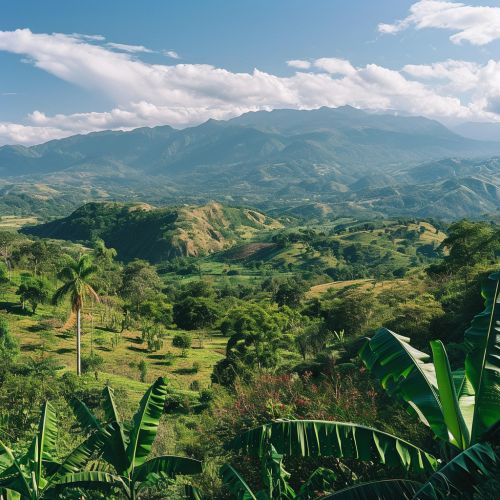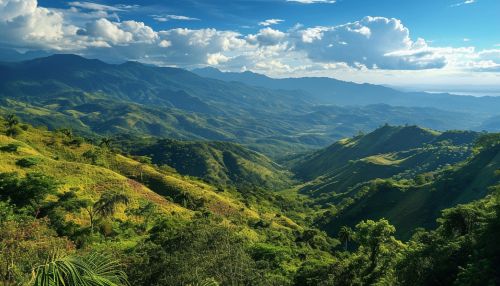Honduras
Geography
Honduras, officially known as the Republic of Honduras, is located in Central America. It is bordered by Guatemala to the west, El Salvador to the southwest, Nicaragua to the southeast, the Pacific Ocean at the Gulf of Fonseca to the south, and the Caribbean Sea to the north. The country's territory encompasses an area of approximately 112,492 square kilometers, making it the second-largest country in Central America.


Climate
Honduras experiences a tropical climate in the lowlands and a cooler climate in the mountains. The country has a wet and dry season, with the wet season typically occurring from May to November and the dry season from December to April. The country is susceptible to hurricanes and tropical storms, which can cause significant damage.
History
The history of Honduras spans several periods, starting with the pre-Columbian era, when the region was inhabited by indigenous peoples such as the Maya. The Spanish conquest in the 16th century marked a significant shift in the country's history, introducing European culture and Christianity. Honduras gained independence from Spain in 1821 and has since undergone several political changes, including military rule and democratic governance.
Politics
Honduras is a democratic republic, with a president serving as both the head of state and head of government. The country's political structure also includes a unicameral National Congress and a judiciary led by the Supreme Court of Justice. Honduras has faced political instability and corruption issues, which have been subjects of national and international concern.
Economy
The economy of Honduras is based on a mix of agriculture, manufacturing, and services. The country is known for its production of commodities like coffee, bananas, and palm oil. Despite economic growth in recent years, Honduras remains one of the poorest countries in Latin America, with high levels of unemployment and poverty.
Culture
Honduran culture is a blend of indigenous, Spanish, and African influences. The country is known for its music, dance, and cuisine, which vary by region. Honduras also has a rich tradition of handicrafts, including pottery, weaving, and woodcarving.
Demographics
The population of Honduras is diverse, with a mix of indigenous groups, mestizos, Afro-Hondurans, and people of European descent. Spanish is the official language, but several indigenous languages are also spoken. The majority of the population is Christian, with Roman Catholicism being the largest denomination.
Education
Education in Honduras is overseen by the Ministry of Education. The country has made strides in improving access to education, but challenges remain in terms of quality and equity. Literacy rates have improved over the years, but dropout rates, particularly in rural areas, remain a concern.
Health
The health system in Honduras is made up of public and private sectors. The country has made progress in improving health outcomes, but disparities exist, particularly in rural areas. Common health issues include communicable diseases, malnutrition, and maternal and child health problems.
